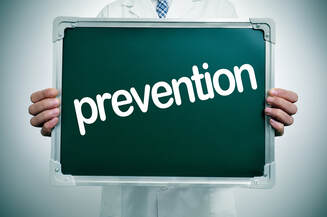
COVID-19 TIPS & RESOURCES FOR THOSE WITH FOOD ALLERGIES &/or ASTHMA*
Individuals with food allergy often have co-existing asthma. Having asthma may put someone at risk of complications from any respiratory virus including COVID-19 (a novel coronavirus) which is circulating in our state of Michigan during an ongoing pandemic.
*These tips are not exhaustive and are not intended to replace medical advice by a patient's own healthcare provider. Contact your team of physicians & nurses with patient-specific questions and for personal medical guidance.
Individuals with food allergy often have co-existing asthma. Having asthma may put someone at risk of complications from any respiratory virus including COVID-19 (a novel coronavirus) which is circulating in our state of Michigan during an ongoing pandemic.
*These tips are not exhaustive and are not intended to replace medical advice by a patient's own healthcare provider. Contact your team of physicians & nurses with patient-specific questions and for personal medical guidance.
Suggestions For Those with Asthma:
Suggestions For Those with Food Allergies at Risk of Anaphylaxis:
Selected Resources
Original post: March 15, 2020
Page reviewed/updated: September 15, 2020
- Review asthma management plan & update it as needed with your healthcare provider.
- Ensure access to and compliance with taking daily prescribed medications to keep asthma under control.
- Have prescribed unexpired emergency medications available and accessible.
- Contact your healthcare provider for asthma medication refills as needed to ensure having enough prescribed medications available for the near future.
- Talk to your healthcare provider about getting the influenza vaccine when it becomes available in fall 2020.
- Routinely check your healthcare provider’s website for general and clinic-specific COVID-19 updates regarding any changes in clinic location (e.g. consolidation of multiple clinic sites into one location, etc.), contact information, services (e.g. telehealth; e-screening, etc.) and general recommendations.
- Practice all COVID-19 related hygiene, sanitation, social distancing and other prevention measures recommended by the Centers for Disease Control: https://bit.ly/2QRMqjk & World Health Organization: https://bit.ly/39tRqBk
- Read CDC tips for those with chronic conditions at risk of complications from COVID-19: https://bit.ly/2QSH1ZH
Suggestions For Those with Food Allergies at Risk of Anaphylaxis:
- Cook and bake ahead to safely store and/or freeze meals free of avoided food allergens.
- Ensure availability of non-perishable foods & beverages free of avoided food allergens.
- Maintain strict vigilance with prescribed food allergen avoidance even during periods of home quarantine, shelter-in-place and/or stay-at-home restrictions. Know all ingredients of food and drink prior to consumption. Contact food manufacturers with questions regarding ingredient label content and check their websites for ingredient changes.
- If facing supply shortages of preferred food allergen free brands at grocery stores, consider communicating with grocery store managers regarding special orders to heighten their awareness of the need to increase supply for certain products and brands. Additionally, consider direct purchase from preferred manufacturers if possible and check the website of a manufacturer for direct order and shipping options for customers.
- If you do need to purchase food with an unfamiliar brand, be sure to follow all prescribed food allergen avoidance measures. For example, following the same vigilance in reading ingredient labels and contacting the food manufacturer with any questions about ingredients, production processes and/or protein cross-contact risks.
- Eating restaurant prepared food can involve varying levels of risk even during 'normal' times for those with food allergies predisposed to anaphylaxis. Beginning March 16, 2020 Michigan restaurants were only legally allowed to provide carryout and delivery service as well as window, walk-up or drive-up services. As of June 8, 2020, all restaurants in Michigan are also now allowed indoor seated dining with implementation of infection control guidelines. For many restaurants, this may involve practices they have never provided before which could potentially increase protein cross-contact risks or involve staff unfamiliar with food allergies. Routine restaurant precautions for those with food allergy are listed here: https://www.foodallergy.org/resources/dining-out. During the ongoing COVID-19 pandemic, be sure to maintain caution with restaurant prepared/delivered food and utilize strict risk mitigation strategies to ensure safety.
- Review your food allergy emergency action plan and update it as needed with your healthcare provider.
- Have prescribed unexpired emergency medication (e.g. epinephrine auto-injector) available and accessible.
- Contact your healthcare provider for any prescribed medication refills as needed to ensure having availability for the near future.
- Routinely check your healthcare provider’s website for general and clinic-specific COVID-19 updates regarding any changes in clinic location (e.g. consolidation of multiple clinic sites into one location, etc.), contact information, services (e.g. telehealth; e-screening, etc.) and general recommendations.
- Practice all COVID-19 related hygiene, sanitation, social distancing and other prevention measures recommended by the Centers for Disease Control: https://bit.ly/2vW0p0p & World Health Organization: https://bit.ly/2QSGWFn
- Carefully read Centers for Disease Control (CDC) recommendations for what to do if you or a family member becomes ill: https://bit.ly/3bvPKZw
Selected Resources
- American Academy of Allergy, Asthma & Immunology on COVID-19 & Asthma: https://bit.ly/39tMQD8
- American Academy of Pediatrics: COVID-19 Planning Considerations - Guidance for School Re-entry: https://bit.ly/2CfjNrU
- American College of Allergy, Asthma & Immunology on COVID-19 & Use of Metered Dose Inhalers & Nebulizers: https://bit.ly/2UBUYfi
- American College of Allergy, Asthma & Immunology on COVID-19 & Use of Normal Allergy & Asthma Medications: https://bit.ly/3atSZRd
- CDC on COVID-19: https://bit.ly/2yhE0LZ
- CDC on School Considerations during the COVID-19 Pandemic: https://bit.ly/30YlOTZ
- CDC on COVID-19: Schools & Childcare Programs: https://www.cdc.gov/coronavirus/2019-ncov/community/schools-childcare/index.html
- COVID-19 & Asthma Took Kit for Schools from Asthma & Allergy Foundation of America: https://www.aafa.org/media/2710/covid-19-and-asthma-toolkit-for-schools.pdf
- Food & Drug Administration (FDA) News Release Regarding Approval of 1st Generic of Proventil HFA (albuterol sulfate) Metered Dose Inhaler, 90 mcg/Inhalation: https://bit.ly/39ZiSHe
- FDA News Release on Temporary Flexibility Policy Regarding Certain Labeling Requirements for Foods for Humans During COVID-19 Pandemic: https://bit.ly/3hIXNWS
- Michigan Department of Health & Human Services COVID-19 Response: https://bit.ly/33SLq3S
- Michigan Safe Schools: Michigan's 2020-2021 Return to School Roadmap: https://www.michigan.gov/documents/whitmer/MI_Safe_Schools_Roadmap_FINAL_695392_7.pdf
- World Health Organization on COVID-19 Disease Outbreak: https://bit.ly/2Unettc
Original post: March 15, 2020
Page reviewed/updated: September 15, 2020
*These tips are not exhaustive and are not intended to replace medical advice by a patient's own healthcare provider. Contact your team of physicians & nurses with patient-specific questions and for personal medical guidance.
Please Note: This website is best viewed on desktop as it is not optimized for handheld devices.


